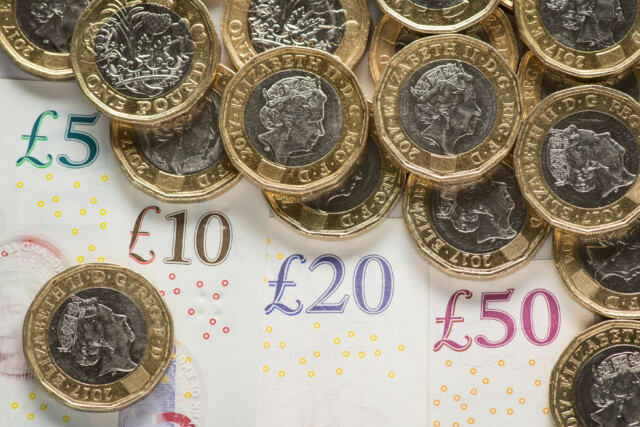
MILLIONS of households will be hit by a £1,450 tax bill rise despite the cuts announced in the government’s recent mini Budget.
Chancellor Kwasi Kwarteng bought forward a planned cut to the basic rate of income tax and reversed a previous national insurance hike.
Households will be but by a £1,540 tax bill rise despite cuts
But a freeze on tax bands remains in place, meaning as people earn more they face paying more tax.
Experts from the Institute for Fiscal Studies (IFS) predict that households will lose more from “stealthy” freezes over the next three years.
It estimates the freeze on thresholds will take away £2 for every £1 given through cuts to personal tax.
This means households will £1,450 a year worse off, according to The Telegraph.
The thresholds for income tax generally rise each year so that people can earn more without paying more tax.
But the tax bands were frozen by former Chancellor Rishi Sunak in 2021 until 2026.
Basic rate tax payers pay 20% on earnings over £12,570, while higher rate payers are charged 40% on earnings over £50,270.
By the 2025-26 tax year, and estimated 7.7 million people will be paying higher-rate tax – the highest number on record.
This is 1.6 million more than the current figure of 6.1 million, the IFS report said.
The IFS also added there are various aspects of the benefits system where freezes are biting.
Around half a million more families are projected to lose some or all of their child benefit entitlement by 2025–26 compared with now.
This is because the £50,000 threshold at which child benefit starts to be tapered away has been frozen since its introduction in 2013.
Tom Wernham, a research economist at IFS said: “Of all the changes to taxes and benefits over the next three years, freezes to various tax and benefit thresholds and allowances are the most significant and least transparent.
“Freezes far more than outweigh headline policies such as the 1p cut to the basic rate of income tax, or the reversal of the health and social care levy, and they are set to drag millions more into the tax system and into higher rates of tax.”
A Treasury spokesperson said: “This Government is committed to a high growth and low tax economy and helping people to keep more of their hard-earned money is a key priority, as seen by our commitments to cancel the rise in national insurance and reduce the basic rate of income tax.”
In the mini Budget, Mr Kwarteng revealed a reversal of a 1.25 percentage point National Insurance hike that took place in April.
It means the average worker will be £330 a year better off from November 6.
And a planned cut to the basic rate of income tax from 20% to 19% will come in earlier from April 2023.
For someone earning £25,000 it will save them around £125 a year.
The exact amount you’ll save depends on how much you earn.
How to avoid paying more tax
There are ways for keeping your tax lower if you creep over the next threshold.
You might want to consider a salary sacrifice scheme.
This is where the government will let you give up a portion of your salary and spend it on certain things free of tax – like a bike for work or rail season ticket.
You don’t pay tax on the portion of your wages that goes towards paying for these schemes, lowering the amount of income tax you pay overall.
You could also pay more into your pension to bring you below the threshold.
When you pay into your pension, some of the money that would have been paid as tax goes towards your pot – and this reduces the amount of tax you pay.
But remember that paying into this will leave you unable to access that cash in the short term.
Meanwhile half a million retirees face bigger tax bills next year.
The frozen income tax thresholds, combined with a state pension increase next year, could lead to fresh tax bills for pensioners who go over the tax-free threshold.







